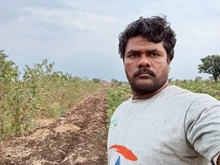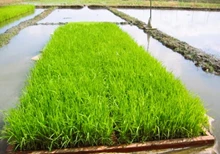
The Coronavirus has presented itself as the new crisis to the farming & agricultural operations.
For Farmers, managing risk is their second nature. Planting crops while facing crop failure risk due to several factors like heavy or no rains, crops diseases & pests, marketing options for farm produce, all are well worn risks for farmers in every season.
In addition to these, in 2020 Novel Coronavirus came & the concept of risk management took a whole new meaning. No one could have predicted it let alone plan for it. Coronavirus poses various risks & challenges to farmers like how to be safe during routine trips to get supplies like pesticides, seeds etc or even how to get certain supplies when markets are closed or going to them poses risks of getting infected from COVID-19 virus.
1. What We Can Learn From History:
Getting creative & imagining for substitutes was the practice that people exercised who survived through Great Depression of 1930’s or The Great Spanish Flu of 1918. Following the same paths farmers can also think of alternatives for the ingredients that may not be available in the markets or are hard to find or expensive. This approach can prove be a nice back-up plan for many farmers. This can also help in reducing costs while profits remains the same.
2. Plans For Risk Management:
• Identify the sources of risk: Frame out the risk management plan considering risks associated with production, marketing, finances & human interaction. The plan should address about prices going up, weather & crops problems. If these issues can be covered then it can be an overview of managing risks.
• Asses Your Current Situation: Ask yourself that what & how much I have? This will give you a perspective of your present resources in terms of land, water, crops, animals etc. Now consider where you want to go? This will help in thinking & finalizing long & short term goals. You can then think about what is most important to keep the process running. Shortlist everything that is necessary & discard others.
• Define Goals: It lets you to build a path from your present situation to the future. Defined goals will help in focusing energy & efforts. Make SMART goals, meaning they should be achievable, time-bound & relevant.
• Timeline Your Actions & Goals: Set a timeline for your goals and actions & keep checking that every action should be in the right direction. Allow some flexibility in your goals & timeline because pandemic situations like these tend to change suddenly. This can pose new challenges. Always try to be informed about what is happening to fellow farmers & what they are doing to cope with the situation. Always read inspiring stories about farmers who are acing in these time of Coronavirus. Reading such stories will give you knowledge & you can implement that knowledge for your own sustenance & good.
• The Golden Rule: Always remember that managing risks require 3 things:
1. Forward thinking
2. Knowledge about what is happening around you
3. Knowledge about what can happen & being flexible according to that.











